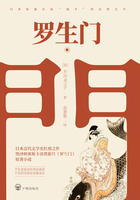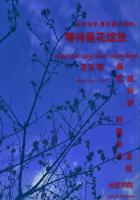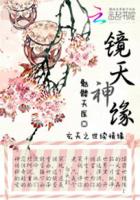Laboring Under Difficulties.
While Paul was careful to set before his converts the plain teaching of Scripture regarding the proper support of the work of God, and while he claimed for himself as a minister of the gospel the "power to forbear working" (1 Corinthians 9:6) at secular employment as a means of self-support, yet at various times during his ministry in the great centers of civilization he wrought at a handicraft for his own maintenance.
Among the Jews physical toil was not thought strange or degrading.Through Moses the Hebrews had been instructed to train their children to industrious habits, and it was regarded as a sin to allow the youth to grow up in ignorance of physical labor.Even though a child was to be educated for holy office, a knowledge of practical life was thought essential.Every youth, whether his parents were rich or poor, was taught some trade.Those parents who neglected to provide such a training for their children were looked upon as departing from the instruction of the Lord.In accordance with this custom, Paul had early learned the trade of tent******.
Before he became a disciple of Christ, Paul had occupied a high position and was not dependent upon manual labor for support.But afterward, when he had used all his means in furthering the cause of Christ, he resorted at times to his trade to gain a livelihood.Especially was this the case when he labored in places where his motives might have been misunderstood.
It is at Thessalonica that we first read of Paul's working with his hands in self-supporting labor while preaching the word.Writing to the church of believers there, he reminded them that he "might have been burdensome" to them, and added: "Ye remember, brethren, our labor and travail: for laboring night and day, because we would not be chargeable unto any of you, we preached unto you the gospel of God."1 Thessalonians 2:6, 9.And again, in his second epistle to them, he declared that he and his fellow laborer while with them had not eaten "any man's bread for nought." Night and day we worked, he wrote, "that we might not be chargeable to any of you: not because we have not power, but to make ourselves an ensample unto you to follow us." 2 Thessalonians 3:8, 9.
At Thessalonica Paul had met those who refused to work with their hands.It was of this class that he afterward wrote: "There are some which walk among you disorderly, working not at all, but are busybodies.Now them that are such we command and exhort by our Lord Jesus Christ, that with quietness they work, and eat their own bread." While laboring in Thessalonica, Paul had been careful to set before such ones a right example.
"Even when we were with you," he wrote, "this we commanded you, that if any would not work, neither should he eat." Verses 11, 12, 10.
In every age Satan has sought to impair the efforts of God's servants by introducing into the church a spirit of fanaticism.Thus it was in Paul's day, and thus it was in later centuries during the time of the Reformation.
Wycliffe, Luther, and many others who blessed the world by their influence and their faith, encountered the wiles by which the enemy seeks to lead into fanaticism overzealous, unbalanced, and unsanctified minds.Misguided souls have taught that the attainment of true holiness carries the mind above all earthly thoughts and leads men to refrain wholly from labor.Others, taking extreme views of certain texts of Scripture, have taught that it is a sin to work--that Christians should take no thought concerning the temporal welfare of themselves or their families, but should devote their lives wholly to spiritual things.The teaching and example of the apostle Paul are a rebuke to such extreme views.
Paul was not wholly dependent upon the labor of his hands for support while at Thessalonica.Referring later to his experiences in that city, he wrote to the Philippian believers in acknowledgment of the gifts he had received from them while there, saying, "Even in Thessalonica ye sent once and again unto my necessity." Philippians 4:16.Notwithstanding the fact that he received this help he was careful to set before the Thessalonians an example of diligence, so that none could rightfully accuse him of covetousness, and also that those who held fanatical views regarding manual labor might be given a practical rebuke.
When Paul first visited Corinth, he found himself among a people who were suspicious of the motives of strangers.The Greeks on the seacoast were keen traders.So long had they trained themselves in sharp business practices, that they had come to believe that gain was godliness, and that to make money, whether by fair means or foul, was commendable.Paul was acquainted with their characteristics, and he would give them no occasion for saying that he preached the gospel in order to enrich himself.He might justly have claimed support from his Corinthian hearers; but this right he was willing to forgo, lest his usefulness and success as a minister should be injured by the unjust suspicion that he was preaching the gospel for gain.He would seek to remove all occasion for misrepresentation, that the force of his message might not be lost.
Soon after his arrival at Corinth, Paul found "a certain Jew named Aquila, born in Pontus, lately come from Italy, with his wife Priscilla." These were "of the same craft" with himself.Banished by the decree of Claudius, which commanded all Jews to leave Rome, Aquila and Priscilla had come to Corinth, where they established a business as manufacturers of tents.Paul made inquiry concerning them, and learning that they feared God and were seeking to avoid the contaminating influences with which they were surrounded, "he abode with them, and wrought....And he reasoned in the synagogue every Sabbath, and persuaded the Jews and the Greeks." Acts 18:2-4.
Later, Silas and Timothy joined Paul at Corinth.These brethren brought with them funds from the churches in Macedonia, for the support of the work.















